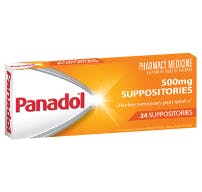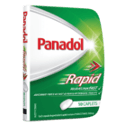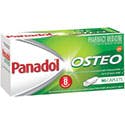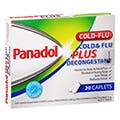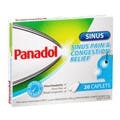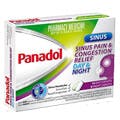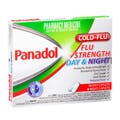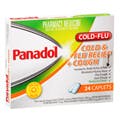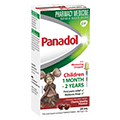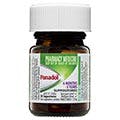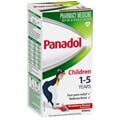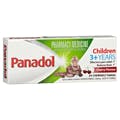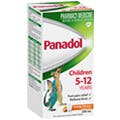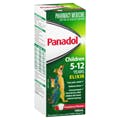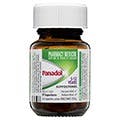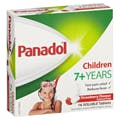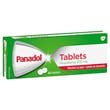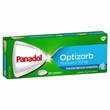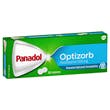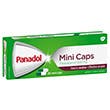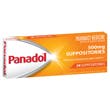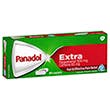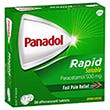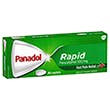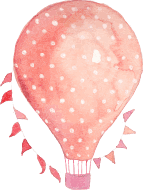

Colourfree Baby Drops 1-2 Months

Colourfree Suspension 1-5 Years

Chewable Tablets 3+

Suppositories 6 Months - 5 Years

Colourfree Suspension 5-12 Years

Elixir 5 - 12 Years

Suppositories 5-12 Years

Soluble 7+

Panadol Tablets

Panadol Caplets with Optizorb Formulation

Panadol Tablets with Optizorb Formulation

Panadol Gel Caps

Panadol Mini Caps

Panadol Suppositories

Panadol Back & Neck

Panadol Extra Caplets

Panadol Rapid Soluble

Panadol Rapid Caplets

Panado Rapid Handipak

Panadol Back & Neck Long Lasting

Panadol Osteo

Panadol Cold & Flu + Decongestant

Panadol Cold & Flu - Flu Strength (Day & Night)

Panadol Cold & Flu Relief + Cough

Panadol Cold & Flu MAX Hot Lemon
Compare Now (0/5)
- Product
- Format
- Age
- Key Features
- Ingredients

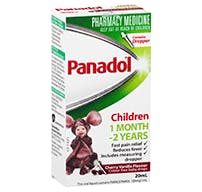
Colourfree Baby Drops 1-2 Months
- Concentrated Drops
- 1 Month - 2 Years
- Gentle on Tiny Tummies
- 500mg Paracetamol
- No gluten, lactose or sugar

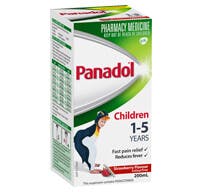
Colourfree Suspension 1-5 Years
- Suspension
- 1-5 Years
- Strawberry/Orange Flavour
- Active Ingredient: Paracetamol 24 mg/mL

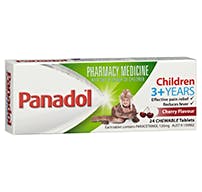
Chewable Tablets 3+
- Dissolvable Tablets
- 1-5 Years
- Perfect For Travel
- Active Ingredient: 120mg of Paracetamol per tablet

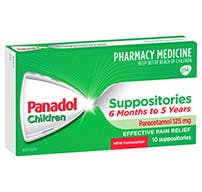
Suppositories 6 Months - 5 Years
- Suppositories
- 6 Months - 5 Years
- For vomiting
- Active ingredient: Paracetamol 125mg per suppository.

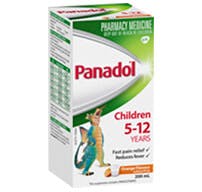
Colourfree Suspension 5-12 Years
- Suspension
- 5-12 Years
- Strawberry/Orange Flavour
- Active ingredient: Paracetamol 48 mg/mL

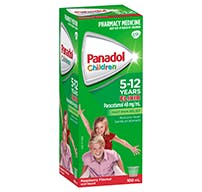
Elixir 5 - 12 Years
- Suspension
- 5-12 Years
- Fast & gentle relief
- Active ingredient: Paracetamol 48 mg/mL

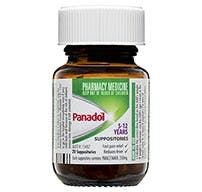
Suppositories 5-12 Years
- Suppositories
- 5-12 Years
- For vomiting
- Active ingredient: 250mg Paracetamol per suppository

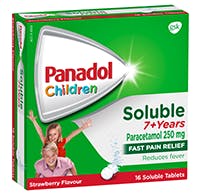
Soluble 7+
- Effervescent Tablets
- 7+ Years
- Absorbed quicker
- Active ingredient: Paracetamol

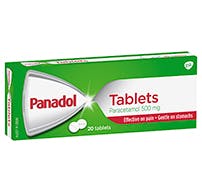
Panadol Tablets
- Tablets
- 12+ Years
- Basic Pain
- Active ingredient: 500mg Paracetamol

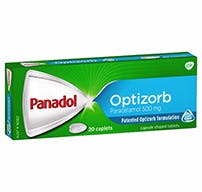
Panadol Caplets with Optizorb Formulation
- Caplets
- 12+ Years
- Quicker Absorbtion
- Active ingredient: 500mg Paracetamol

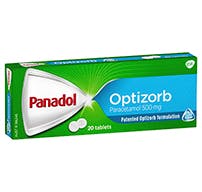
Panadol Tablets with Optizorb Formulation
- Tablets
- 12+ Years
- Quicker Absorbtion
- Active ingredient: 500mg Paracetamol

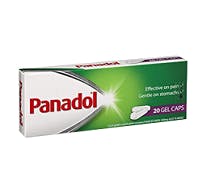
Panadol Gel Caps
- Caplets
- 12+ Years
- Easier to swallow
- Active ingredient: 500mg Paracetamol

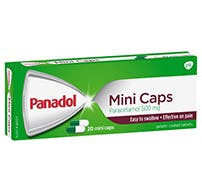
Panadol Mini Caps
- Caplets
- 12+ Years
- Easier to swallow
- Active ingredient: 500mg Paracetamol

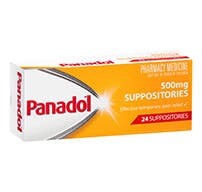
Panadol Suppositories
- Suppositories
- 12+ Years
- For vomiting
- Active ingredient: 500mg Paracetamol per suppository.

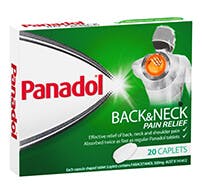
Panadol Back & Neck
- Caplets
- 12+ Years
- Fights Back Pain
- Active ingredient: 500mg Paracetamol

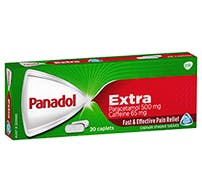
Panadol Extra Caplets
- Caplets
- 12+ Years
- Fight Tough Pai
- Active ingredient: 500mg Paracetamol , 65mg caffeine

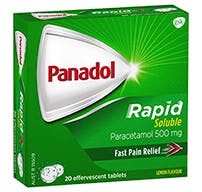
Panadol Rapid Soluble
- Dissolvable Tablets
- 12+ Years
- Absorbed 2x Faster
- Active ingredient: 500mg Paracetamol

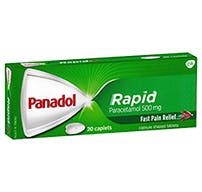
Panadol Rapid Caplets
- Caplets
- 12+ Years
- Absorbed 2x Faster
- Active ingredient: Paracetamol

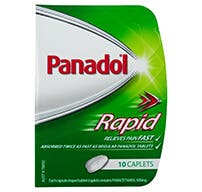
Panado Rapid Handipak
- Caplets
- 12+ Years
- Absorbed 2x Faster
- Active ingredient: 500mg Paracetamol

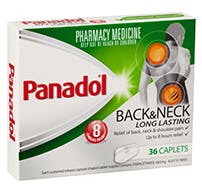
Panadol Back & Neck Long Lasting
- Caplets
- 12+ Years
- Up to 8 hours
- Active ingredient: 655mg Paracetamol

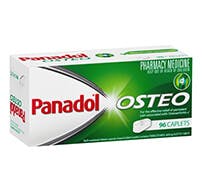
Panadol Osteo
- Tablets
- 12+ Years
- Up to 8 hours
- Active ingredient: 665mg Paracetamol

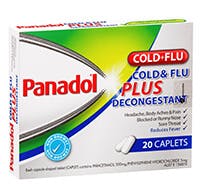
Panadol Cold & Flu + Decongestant
- Caplets
- 12+ Years
- With Decongestant
- 500mg Paracetamol

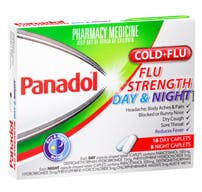
Panadol Cold & Flu - Flu Strength (Day & Night)
- Caplets
- 12+ Years
- Day & Night Relief
- 500mg Paracetamol

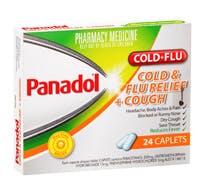
Panadol Cold & Flu Relief + Cough
- Caplets
- 12+ Years
- Cough Relief
- 500mg Paracetamol
Minimise
Formula Feeding
Whether you choose to formula feed, or need to use an occasional bottle, here are some handy hints to make it enjoyable for you and your baby.
The older your baby gets, they will have fewer feeds but with more volume at each feed.
How to make up formula
- Sterilise bottles and teats before each feed until baby is one year old (see below).
- Wash hands before preparation.
- Boil fresh water and let it cool down for at least 30 minutes so it’s lukewarm, then measure water into a bottle.
- Add formula powder to the bottle, using scoop provided in the tin.
- Don’t pack down the formula, but scoop it up loosely and level it off with a sterilised plastic knife.
- Place the teat and cap on, and shake until formula is dissolved.
- If your formula doesn’t mix well (i.e. it’s lumpy), the water may be too hot or too cold.
- Ideally, prepare only one bottle of formula at a time. You can store sterilised bottles of boiled water in the refrigerator, then warm a bottle as needed and add formula.
- If several bottles of formula are prepared in advance (e.g. for a babysitter), store the premade formula in the back of the refrigerator, not the door.

.png?auto=format)
Which formula?
- While breastmilk is best for babies, as it contains all the nutrients that they need for the first 6 months, infant formulas are manufactured to meet baby’s recommended nutritional needs. Choose one brand and use it consistently.
- Most formulas are cows’ milk based. Although most babies do well on this, some babies cannot tolerate the proteins in cow’s milk and need another type of infant formula. If this is the case, consult your paediatrician for advice.
- There are two age categories of formula: 0–6 months and 6–12 months. After 12 months you can change from formula to full fat cow’s milk from the supermarket.
How many feeds?
The number of feeds depends on your baby’s age. As your baby gets older they will have fewer feeds each day, but the amount in each feed will increase. A one month old baby may have up to 8 feeds a day while a 6 month old may take around 5 feeds a day. If you find your baby sometimes gets extra hungry and wants more at a feed, try making up an extra bottle each day so you have some ready if needed.
How long should the feed take?
Between 15–30 minutes with a young baby. If your baby takes less than 15 minutes you need a slower flow teat, as sucking is important for comfort as well as for feeding.
How much formula to give baby at each feed?
How much formula your baby needs depends on their age, their weight and the number of feeds they are having each day. The information on the formula can is a guide only.
Multiply 150 millilitres (mLs) by your baby’s weight in kilograms and divide the total by the number of feeds baby has in 24 hours. This will give you the number of mls per feed.
If baby weighs 3.6 kilos and has 6 feeds: 150 x 3.6 = 540 ÷ 6 = 90 mL per feed.
Note this is a guide only – your baby might want more or less.
How will I know if my baby is getting enough formula?
- Generally they seem contented after a feed (unless they have reflux or colic).
- They have 6-8 wet nappies in 24 hours (the urine should be almost colourless).
- They may have a bowel movement every day or not for a few days. This should always be a soft, paste like consistency, darker yellow to brown.
Consult your Child Health Nurse if you need further advice.
Bottle feeding tips:
- Hold your baby close to you. Never leave them alone or prop up the bottle, as they can choke (as well as miss out on cuddles).
- When it’s nearing feed time, warm the bottle so your baby doesn’t have to wait.
- Shake the bottle after warming to ensure even distribution of heat.
- Test the temperature of the milk on the inside of your forearm before giving it to your baby. It should be lukewarm, or at room temperature.
- When feeding, tilt the bottle so milk fills the teat and neck of the bottle. Watch for air bubbles, which show that your baby is getting the milk. If the teat flattens, unscrew the top of the bottle a little to allow air to flow in.
- Try burping your baby half way through the feed. You may also like to change their nappy at this stage. Burp again at the end of the feed.
- Don’t force your baby to finish all the milk in the bottle – sometimes they will leave a little. Throw away any milk left over after a feed.








